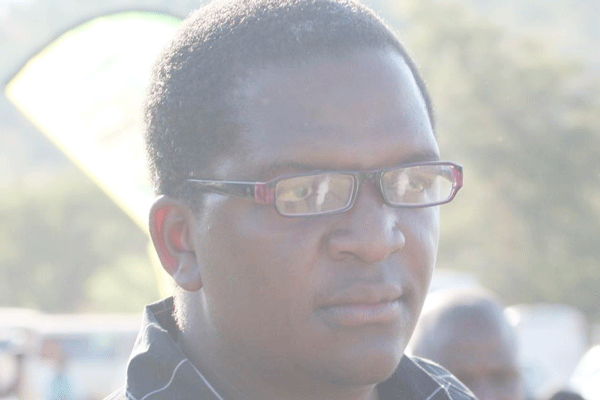
BY JAIROS SAUNYAMA
They say death is a crafty thief, one that takes without notice and is always accompanied by a baggage of grief. It is not the grief that is troubling me. It’s not the thought of never again that stresses my imagination, but the unanswered questions that trouble my soul.
Why? How? Did he at some point think it was not worth it? Did he shout for help but his voice was already halfway to the unknown?
I ask and the true sense of Simon Chimbetu’s song Ndoubvunza Mubvunzo Kuna Samatenga can now be realised. Perhaps Killer T’s song Bvunza Tinzwe could have brought answers but it’s laden with similar questions.
Godwin Muzari (pictured), affectionately known as “Godfather”, was a reserved person. As an overzealous young scribe, he was there to guide me — reminding me of both my strengths and weaknesses.
I remember there were four of us freelancing as arts journalists for NewsDay some years back. The others are Tawanda Marwizi, Kundai Marunya and Winstone Antonio. In the newsroom were Silence Charumbira and Tinashe Sibanda. Muzari respected all of us and his workstation was accessible. We would walk from the Media Centre (then at Harare Club) to AMH offices at Number 1, Kwame Nkrumah Avenue for him to demonstrate to us on how to write an entertainment story.
It was during the government of national unity era and the economy was a bit stable. As young arts journalists, we wrote whatever came our way so that we could earn more on the 10th day of each month.
Muzari knew about it and he diplomatically allocated work for us to avoid clashes and sending same stories to him. He made sure that I and Marwizi were to focus on sungura and reggae music. I Marunya did the elite arts reporting — that focused on theatre and poetry; while Antonio did much on modelling and pageants.
- Chamisa under fire over US$120K donation
- Mavhunga puts DeMbare into Chibuku quarterfinals
- Pension funds bet on Cabora Bassa oilfields
- Councils defy govt fire tender directive
Keep Reading
It worked. Today, all of us are successful arts journalists as measured by the accolades we have so far received in the arts sector. Muzari’s contribution to such achievements cannot be ignored.
He was also a generous giant. After buying his ex-Jap vehicle, a Honda CRV, Muzari would surrender it to me and Marwizi without any hassle. Of course, he was unlicenced by then, but it was a good gesture to drive him around while he sipped his beer.
Godfather loved beer and he didn’t regret it. We would have liquid lunches together in the dingy bars close to “Number 1” as we would call AMH offices then.
After I left Harare for Mashonaland East province, Muzari was against the idea, but I had no choice but to follow my dreams. He knew that I was going to try other news beats thereby depriving him of entertainment stories. It was a true prophecy indeed.
We kept on communicating via social media, especially on Facebook. After crossing the floor becoming entertainment editor at The Herald, Muzari made sure that he worked with one of his youngsters he had groomed. He worked with Marwizi and later with Marunya and the two arts journalists served well.
My last one-on-one encounter with him was two seasons ago. Muzari had just received an award at the National Journalism and Media Awards (Njama) for the Best Arts Reporter of the Year after his story on Mbuya Dembo which shook the arts industry. He told me that it was my turn to win such an award due to my hard work.
“I am following your arts stories and you are following in my footsteps. It is high time you grabbed either a NAMA or Njama award,” he said.
It was prophetic. I am currently the reigning Njama Arts Reporter of the Year.
The angel of death is a jealous creature — he succeeded in snatching away one of the finest in the industry.
Suicide or no sucicide, you were bound to go. Suicide or no suicide, we are all bound to follow you.
The trademark smile, the huge frame and all those brains are now buried somewhere near Hatcliffe.
Surely, the cemeteries are the richest places in the world and Muzari contributed to their treasures earlier than we thought. Rest in peace, Godfather.











